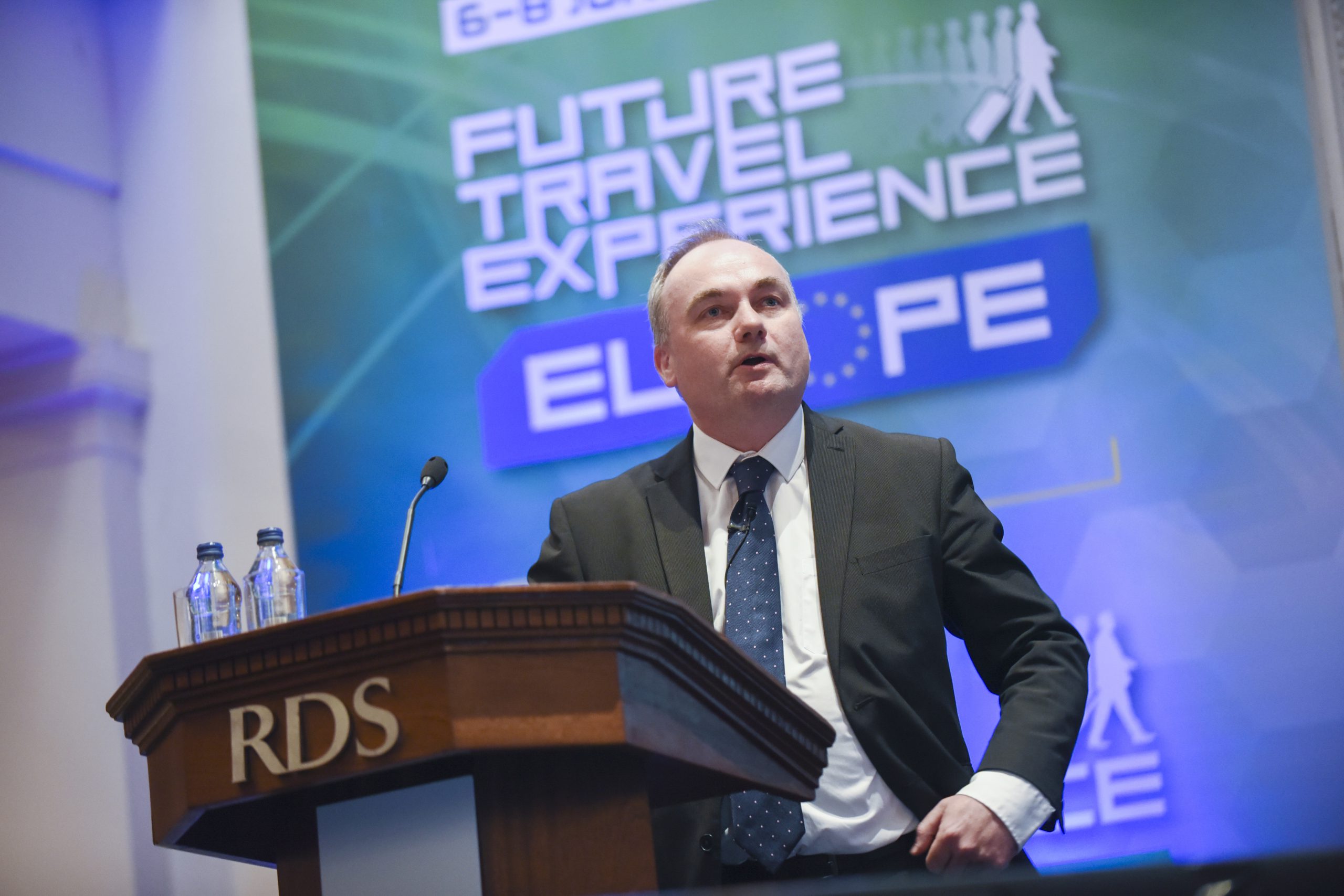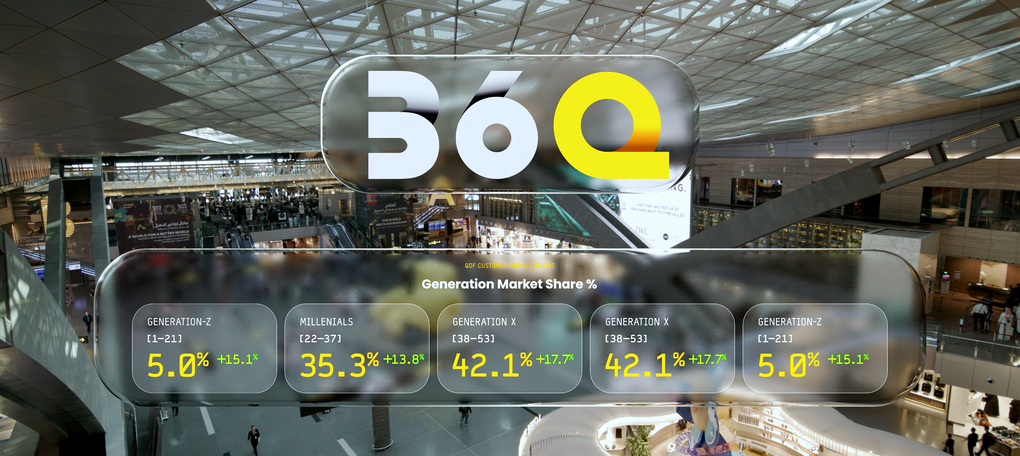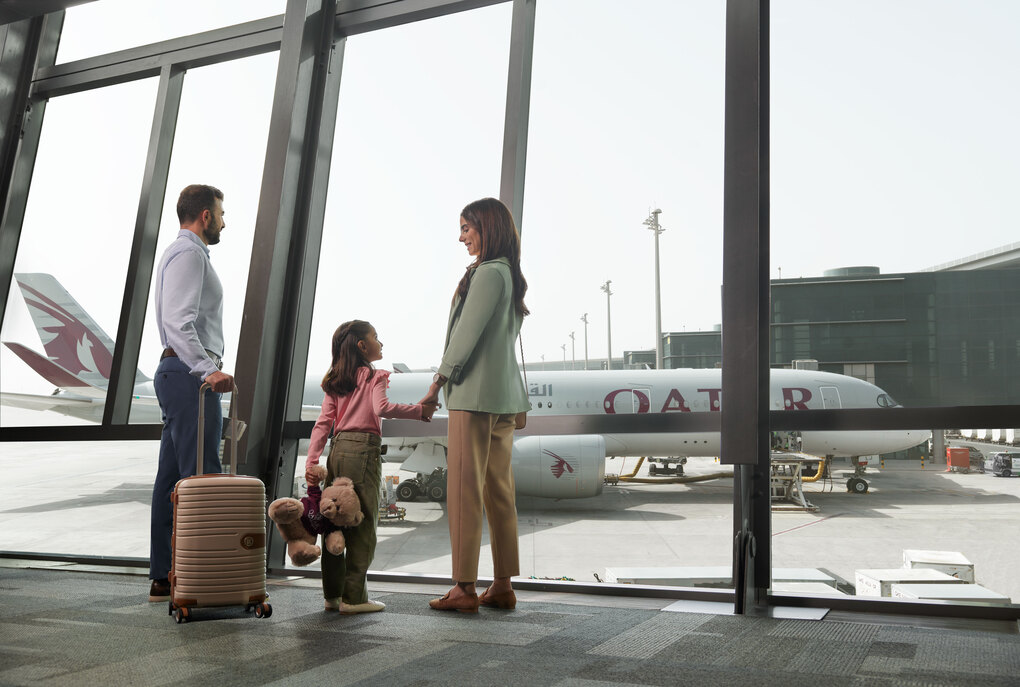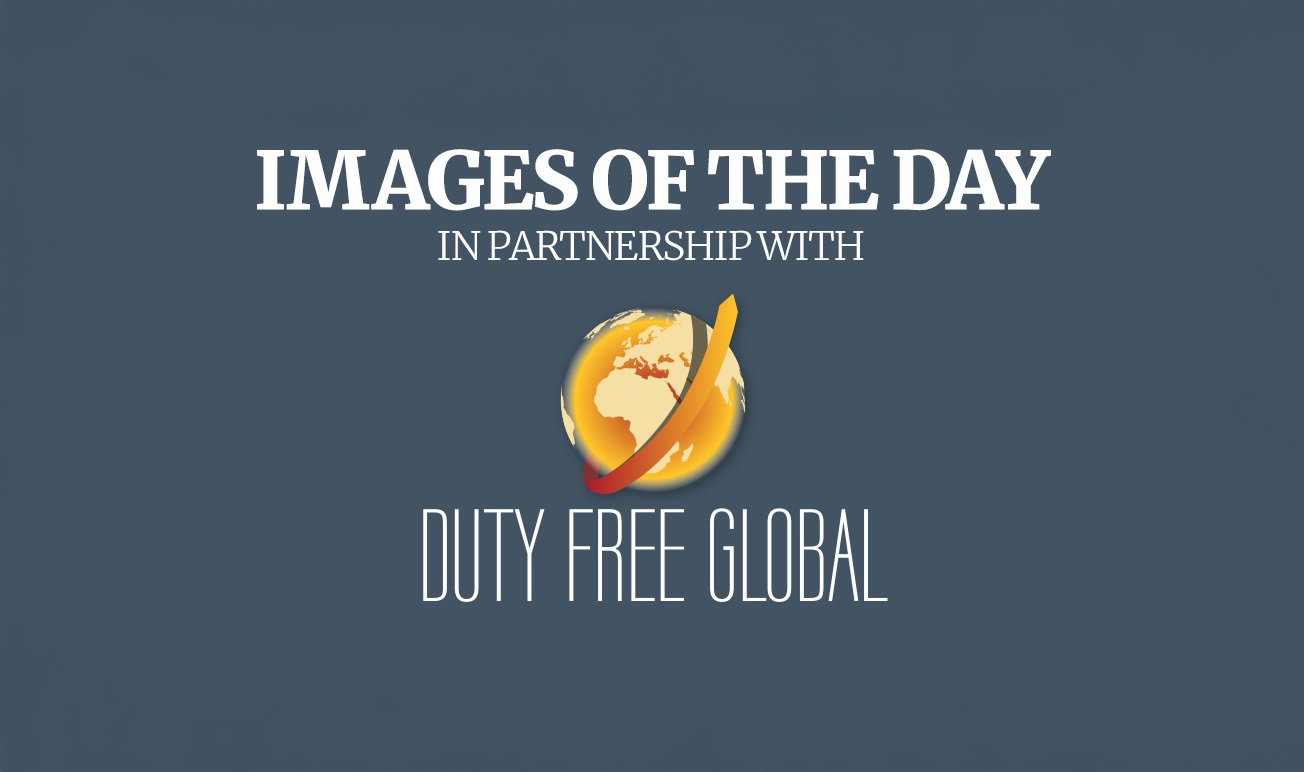HUNGARY. A three-month promotional partnership launched by Budapest Airport, Heinemann Duty Free and Wizz Air has delivered a healthy rise in penetration and spend and could be a template for future industry cooperation, according to the parties.
The BARTA (Brand, Airline, Retailer, Technology, Airport) trial, if rolled out across European travel retail, could produce incremental industry sales of around US$860 million, they claimed. [Note: A full report including more comment, images and video, will appear in this week’s edition of The Moodie Davitt e-Zine.]
The project’s results were outlined at a special session of the Future Travel Experience (FTE) conference, held in Dublin from 6-8 June. The initiative, which was first announced at FTE 2017 (initial findings were reported in April), will also be highlighted during The Trinity Forum in Shanghai (31 October-1 November) as part of a Trinity-BARTA working cooperation.
The trial ran for three months from 1 March at Budapest Airport. Any departing Wizz Air passenger spending over €50 or €75 at Heinemann Duty Free stores received a €4.50 or €7.50 voucher to spend onboard the airline. In March/April some 77% of vouchers were redeemed (final results for May are awaited).
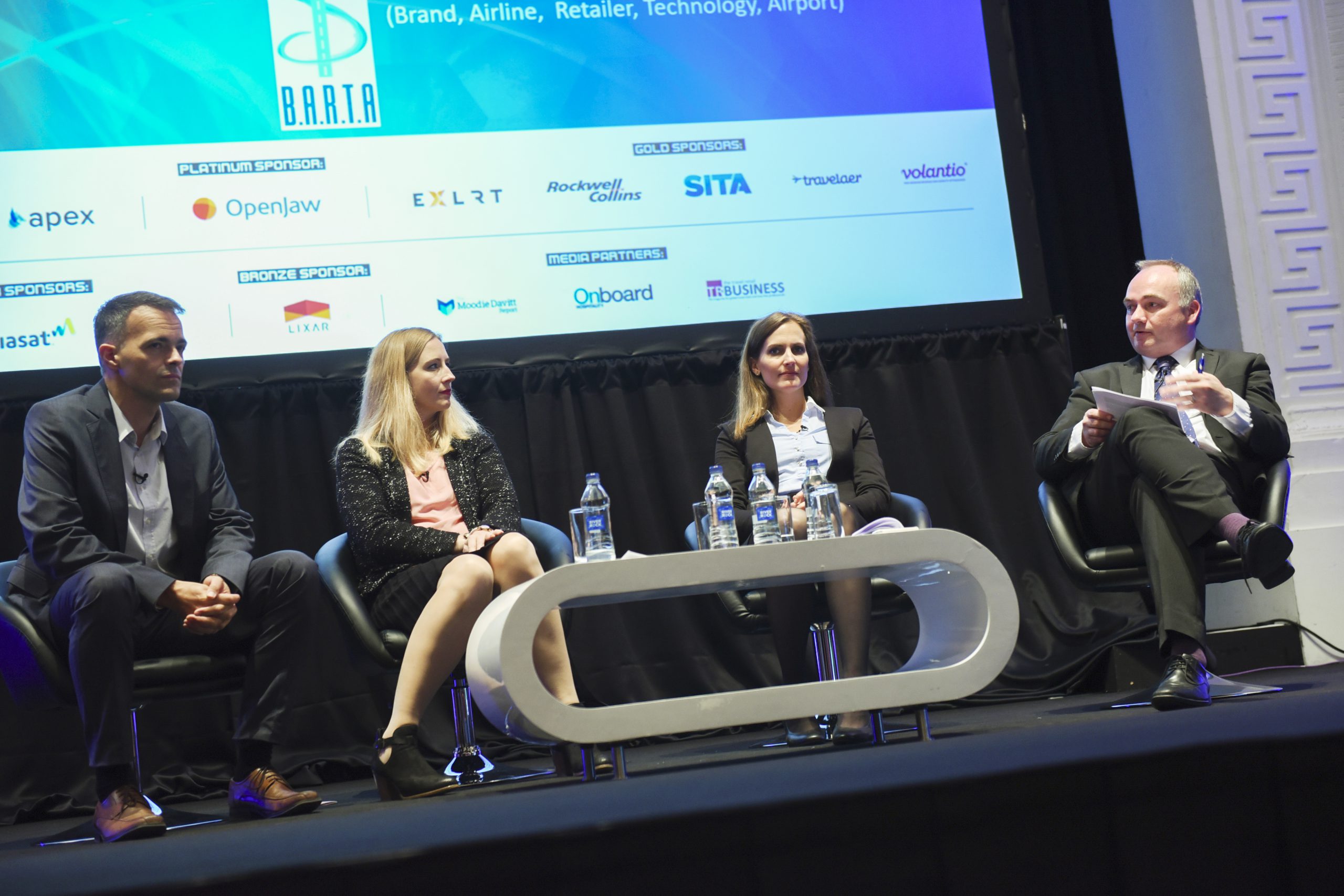
For each party the Key Performance Indicators were positive. For the airport, sales growth among Wizz Air travellers outperformed other groups in the period, and crucially there was no negative impact on airport F&B despite the strong level of voucher adoption for F&B use onboard.
For Heinemann, penetration increased in the period by +3.3% (the non-EU rise alone was +4.3%) and spend per passenger by +4.3%, both well above the performance of non-Wizz Air travellers in the same time. By key route, stand-out sales came from travellers to London Luton, Tel Aviv and Barcelona, each with double-digit spend per passenger growth at Heinemann stores.

Wizz Air found that onboard café sales grew more strongly at its Budapest base than across the rest of its network in the period, and saw no cannibalisation of boutique (retail) sales. Crucially, outbound sales from Budapest (with travellers who engaged with the campaign) outstripped those on inbound Wizz Air flights. The airline also found that the top-performing routes from Budapest for café sales overlapped largely with those for duty free sales.
Budapest Airport Head of Retail and Advertising Patrick Bohl said: “Some time ago we began a dialogue with Heinemann and Wizz Air, who until then didn’t have a commercial relationship. We foresaw a trial that could benefit all of us, which ran from 1 March to 31 May – but of course was flagged by our Executive Director Kam Jandu at FTE Ancillary in 2017. We developed a campaign and we believe the results are compelling.”

Heinemann Hungary Managing Director Ildikó Jankovich said: “We had an ambitious vision of connecting all players in the travel retail sector. We wanted to create something together that we could not do separately, and to create more sales and profits for all stakeholders.
“For me the key rules were that it was easy [to understand and implement], would work and would be commercial. It was important as we had to define a promotional mechanism that was simple for passengers.”
Describing it as “a true Trinity project”, Jankovich said it was instigated by the airport but had a positive response from both Wizz Air and her company, Heinemann. “It’s about creating true benefits for passengers by combining the various players. It involved much teamwork and was very important that all our teams bought into this, with the Wizz Air crew really involved in driving the final part of the process onboard.”

Wizz Air Revenue Development Manager Ildiko Marcze outlined the key marketing considerations and commercial aspects of the project. Crucial was the use of both online and offline channels across each of the partners’ platforms. Among these were their respective websites, social media, airport and retailer digital advertising posts, with Wizz Air using push notifications and boarding pass messaging to reinforce the campaign. These were reinforced by promotional staff on the ground and in the air.

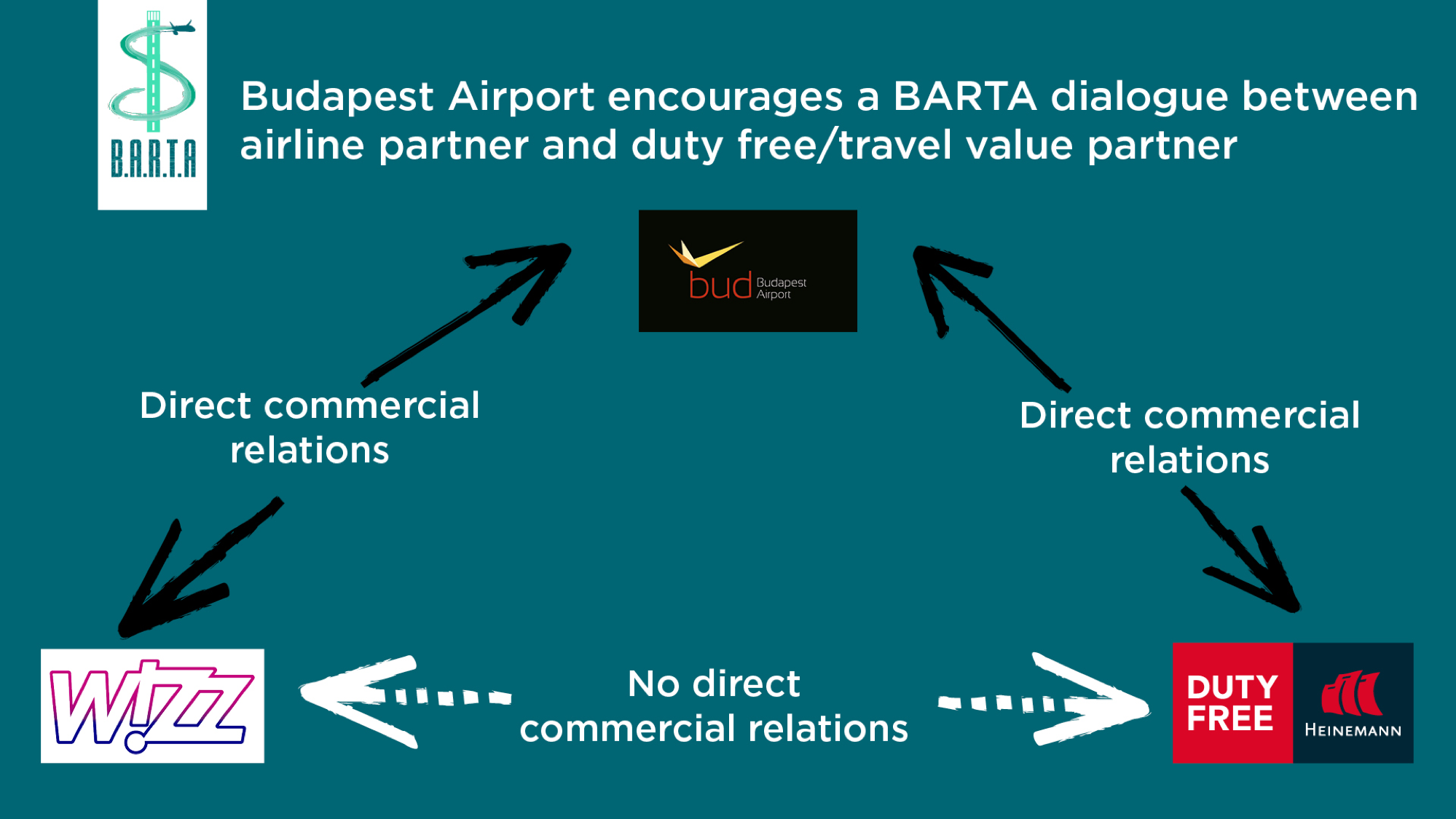

Bohl concluded: “I think we have a big opportunity. The big challenge at the beginning was to convince an airline to take part. Now we have seen how such a campaign can lead to sales above the rest of the network, and no cannibalisation of sales onboard.
“A sales rise of +4.3% sales per passenger, if reproduced across Europe, would see an uplift of US$860 million and that’s without the final May figures. It’s worth us continuing this discussion, though The Trinity Forum, which has also delivered many great new initiatives and collaborations. And ACI Europe through its Retail & Commercial conference is another forum that can take this forward through retailers and brands.”
*Watch out for our full report in The Moodie Davitt e-Zine later this week, featuring further comment, images and video of the BARTA session.
**Dubai Airports Executive Vice President Commercial Eugene Barry also spoke at FTE Ancillary in Dublin, on how the world’s leading airport by international passenger traffic is using technology to improve the consumer and commercial experience. Barry is also a speaker at next week’s FAB Conference in Helsinki, organised by The Moodie Davitt Report. We’ll bring you highlights of his presentation from that event.
